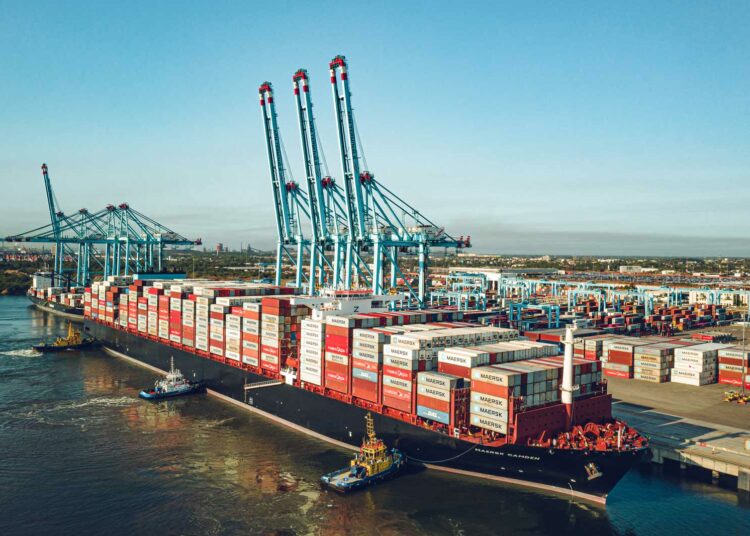West Africa Container Terminal (WACT)-APM Terminals Nigeria and the Nigerian Ports Authority (NPA) have signed a $60 million collaboration to advance decarbonisation within Nigeria’s port and transportation ecosystem.
This was disclosed in New York at the Dutch Consulate during the week of the Global African Business Initiative when the two parties signed a memorandum of understanding (MOU).
The MoU, LEADERSHIP gathered, was to establish the framework to pursue a roadmap to electrify containerised freight in accordance with the policies of the Federal Ministry of Marine and Blue Economy in the country.
However, according to the chief executive officer, APM Terminals Nigeria, Frederik Klinke, at the signing ceremony, said the country can leapfrog fossil-fuel infrastructure by adopting proven electric technologies.
“We believe that Nigeria is ideally situated to lead West Africa’s transition to low-carbon logistics by electrifying its container transport sector,” Klinke said
“Nigeria is Africa’s largest economy and trade hub, and our research shows us that the country can leapfrog fossil-fuel infrastructure by adopting proven electric technologies.
Therefore, we are very optimistic about our joint plans to start shaping the phased roadmap of an electrified future for container logistics,” Klinke stated.
Reacting to the MOU-signing, the managing director of the Nigerian Ports Authority, Dr Abubakar Dantsoho, said the signing will also make Nigerian ports the leader on the continent in terms of sustainable port operations.
“By this development, the Onne Port will be the first green port in Nigeria and thereby promoting the decarbonisation efforts within the transportation ecosystem. This will also make Nigerian ports the leader on the continent in terms of sustainable port operations.”
While congratulating the APM Terminals for the collaboration, which will be wholly funded by APM Terminals to the tune of 60 million USD, the MD said that he is hopeful that this would be the model for African countries to copy.
The MOU further builds on a study presented by APM Terminals to the vice president of Nigeria at the Decarbonising Infrastructure in Nigeria Summit in Abuja in July this year. It concludes that the transition from fossil fuels to electrified container freight has the potential to unlock private investments, create skilled jobs and ensure a more reliable energy supply.
However, to make the changes needed, coordination of the sectors and collaboration between public and private partners is essential.
“For APM Terminals, our partnerships are key to generating long-term growth and value to the countries we operate in. Our investments are for our shared future and for the people living in the region, and we look forward to driving this project with our stakeholders in the port industry,” concludes managing director of the West African Container Terminal in Onne, Nigeria, Jeethu Jose.





